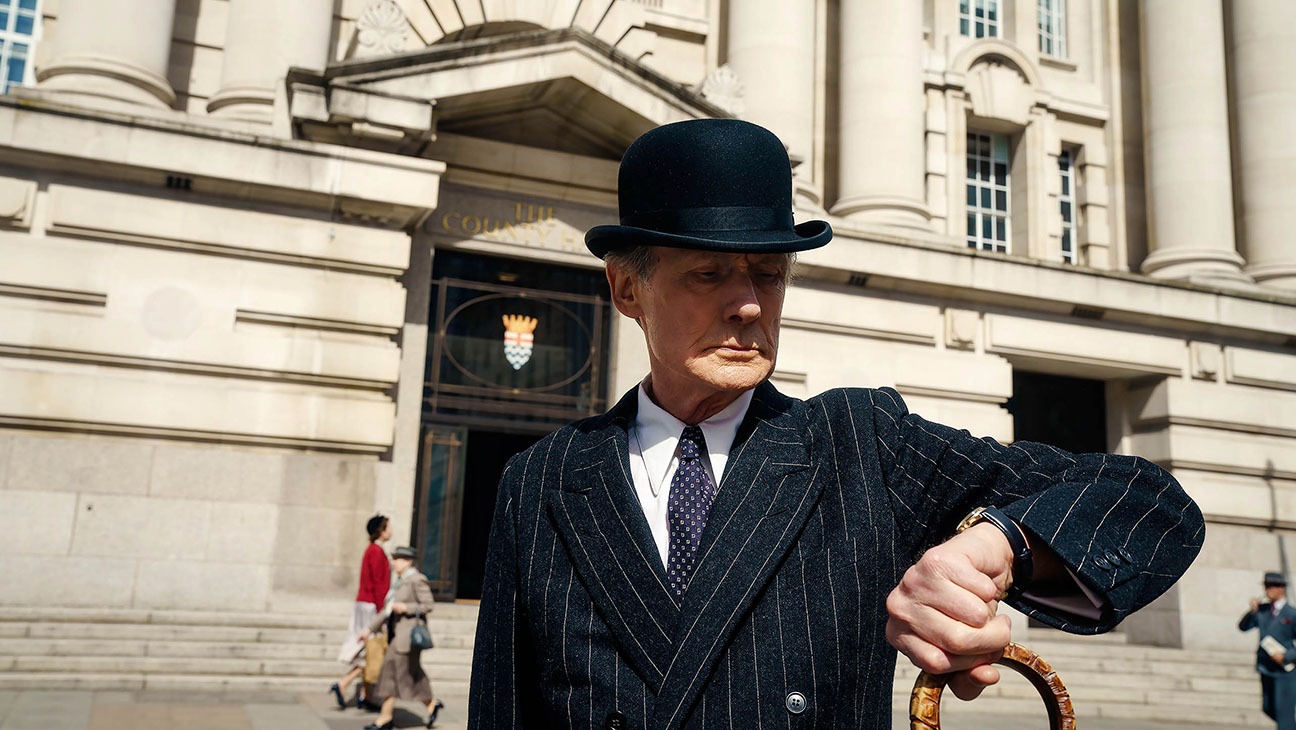Bill Nighy’s extensive and distinguished career takes a new turn with Living, where he delivers a quietly poignant performance in a leading role that has long eluded him. This film not only offers Nighy the opportunity to display his dramatic depth but also cements its place as one of 2022’s standout cinematic achievements.
His portrayal of Mr. Rodney Williams has garnered accolades across major award platforms, including nominations at the BAFTA, Golden Globe, Screen Actors Guild, and Critics’ Choice Awards. Critics have celebrated his ability to captivate audiences with understated emotion, particularly in the film’s heartfelt conclusion.

The Story Behind ‘Living’
Directed by Oliver Hermanus, Living portrays the final months of Mr. Rodney Williams, a 1950s London Public Works department employee who receives a terminal cancer diagnosis.
Stripped of purpose in his monotonous job, Williams decides to embrace the time he has left by creating meaningful experiences and leaving a lasting legacy. His journey to rediscover life becomes a touching exploration of human connection and the pursuit of fulfillment, even in the face of mortality.
Despite its somber premise, Living avoids falling into despair, presenting an uplifting narrative of self-discovery and kindness. The character’s relationships with younger colleagues are especially touching, providing moments of genuine warmth that resonate throughout the story. The poignant ending encapsulates a profound reflection on the value of life and compassion.
A Connection to Kurosawa’s ‘Ikiru’
Living serves as an English adaptation of Akira Kurosawa’s Ikiru, a classic inspired by Leo Tolstoy’s novella The Death of Ivan Ilyich. While the premise of both films aligns closely, Living tailors its setting and cultural nuances to 1950s England, reimagining the themes in a way that respects the original while avoiding cultural insensitivity. The historical recreation adds a layer of authenticity and ensures that the adaptation feels relevant to its new context.
Williams’ Final Mission
Williams’ introspection leads him to confront the emptiness of his professional life. Though initially disheartened by the inefficiency of his department and the perceptions of his younger colleagues, he channels this realization into something constructive.
A candid conversation with a secretary, Margaret Harris, reveals that his rigid demeanor has earned him the nickname “Mr. Zombie.” Instead of taking offense, he begins to embrace change, forming meaningful connections with both Margaret and Peter Wakeling, a new employee. These relationships reignite his determination to make a difference.
A Playground as a Legacy
Determined to create something meaningful, Williams focuses his energy on completing a long-neglected playground project. This initiative not only counters the bureaucratic stagnation he once tolerated but also reflects his newfound sense of purpose.
The playground symbolizes joy for the community and serves as a tangible representation of Williams’ compassion and dedication. It also becomes a testament to his growth, highlighting how he found peace and fulfillment through a project that will outlive him.
Family Ties and Missed Opportunities
Williams’ relationship with his son Michael and daughter-in-law Fiona is strained, and his attempts to reconnect falter as his focus shifts to his legacy.
While he never finds the courage to disclose his diagnosis to Michael, his commitment to the playground leaves a lasting impression. Though their bond remains unresolved, Michael’s admiration for his father’s final efforts becomes a quiet acknowledgment of their connection.
The Film’s Poignant Finale
The closing scenes of Living mirror the iconic imagery of Ikiru, as a police officer recalls seeing Williams contentedly sitting on a playground swing. This serene moment underscores Williams’ acceptance of his life’s end and the pride he takes in his accomplishments.
The visual of him on the swing serves as a final reflection of a man who found purpose and left an indelible mark through acts of kindness and dedication.



